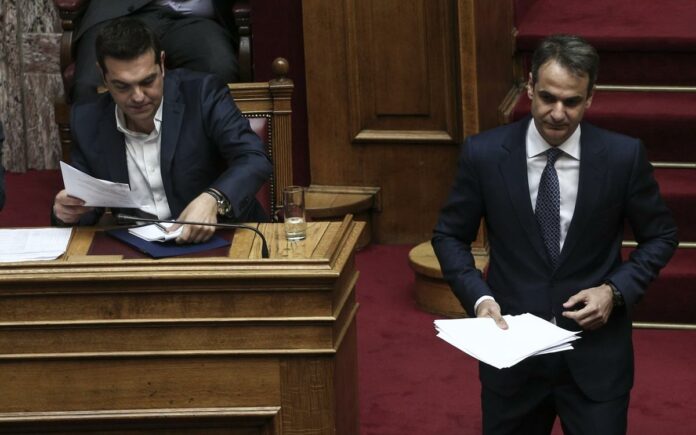The government took two, albeit small, steps back from a tax-laden draft bill over the weekend that completes a 5.4-billion-euro package of austerity measures aimed at meeting memorandum fiscal targets through 2018.
One consolation was the withdrawal of an amendment freezing special wage scales in the wider public sector for the next two years, a measure that would have frozen pay scales of special staff — from military officers to physicians to judges, among others.
Additionally, the government said it would not ask for the retroactive reduction of a special pension benefit allocated to low-income pensioners. Although the actual bonus (EKAS) will gradually be eliminated, the state won’t demand that money be returned due to a retroactive clause.
Greek Prime Minister Alexis Tsipras, in a bid to “sugarcoat” the rest of the tax-laden bill, announced the decisions, which led to a firestorm of opposition criticism over a populist and opportunistic stance, i.e. announcing a wide variety of tax measures and privatizations only to take back two of the more painful measures.
Speaking from Parliament’s podium, Tsipras said his government posted a 1.7-billion primary budget in 2015, something that allows it to allocate 700 million euros for social spending. With the extra money, he said the leftist government will create what he called a “Social Solidarity Fund”. The fund will funnel spending towards the “humanitarian crisis” – the effects of the recession – and a social employment program.
On his part, main opposition New Democracy leader Kyriakos Mitsotakis expressed his party’s position for lower primary budget surplus targets.
He also spoke during Sunday evening debate in Parliament over the tax bill.
In turning his attention to the Tsipras government, he called the latter a comedy “troupe”, while referring to a “new agreement of truth with our partners”, one which will foresee a growth rate of 4 percent of GDP on an annual basis and a primary budget surplus of 2 percent.
He said ND’s goal is an increase of GDP to 213 billion euros.














